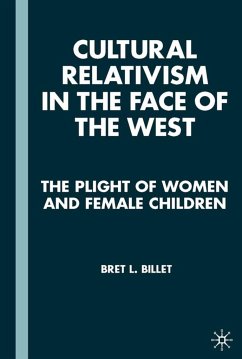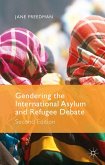While the merit of universalism and cultural relativism are perennially contested, this insightful analysis argues that the human rights of women and female children are best realized through the establishment of cross-cultural human rights universals. Western universalism has been quick to dismiss alien cultural practices as dysfunctional, while cultural relativists continue to bellow the ills of cultural imperialism. Case studies on circumcision, infanticide, prostitution, and labor provide substantive contexts in which to evaluate these arguments. Billet utilizes a six-fold analytical framework to detail particular aspects of each practice and to present potential resolutions for the disparity between the extremes of Western universalism and cultural relativism.
Billet examines the debate between the uniform application of universal human rights and cultural relativism. Billet outlines the foundations and evolution of both schools of thought. The book also examines case studies that involve either women or children and are typically viewed by the West as violations of fundamental human rights.
Hinweis: Dieser Artikel kann nur an eine deutsche Lieferadresse ausgeliefert werden.
Billet examines the debate between the uniform application of universal human rights and cultural relativism. Billet outlines the foundations and evolution of both schools of thought. The book also examines case studies that involve either women or children and are typically viewed by the West as violations of fundamental human rights.
Hinweis: Dieser Artikel kann nur an eine deutsche Lieferadresse ausgeliefert werden.
"This book examines one of the most important issues in the contemporary international system. The questions relating to whether there are universally applicable human rights that transcend local cultural traditions go to the very heart of the ongoing debate over globalization. In a clear and concise manner, this book begins by explaining the basic arguments and assumptions associated with cultural relativism and with the position that human rights extend to all people across the globe. Following this, several human rights issues regarding the role of females in developing societies are examined in an extremely thoughtful and illuminating way. This book is ideally suited for courses on international politics, globalization, and human rights."
- John M. Rothgeb, Jr., Professor of Political Science, Miami University of Ohio
- John M. Rothgeb, Jr., Professor of Political Science, Miami University of Ohio








